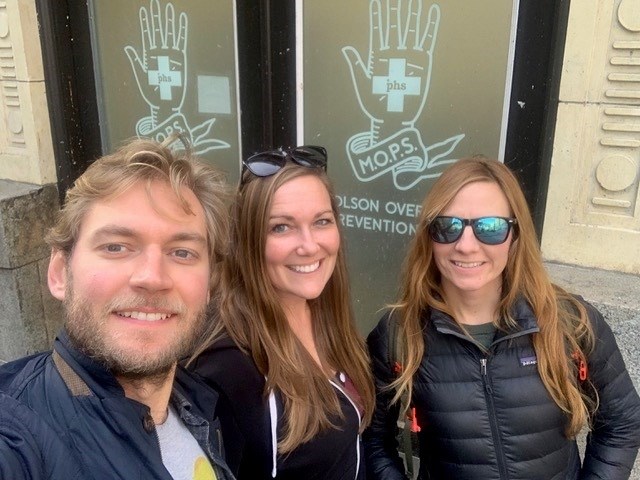Kenora is facing an HIV crisis, according to local health care professionals.
Fifteen people in Kenora have tested positive for HIV in the past nine months, said Dr. Jonny Grek,, a physician who spoke at a public meeting on community safety last week.
Grek said this is a totally new situation for the area.
“We haven't had any new cases in years and then all of a sudden the turn of the year, after we just had a particularly aggressive violent kind of outbreak of COVID here amongst the homeless population [and] people who use drugs, suddenly we started seeing in March 2022 the first case and a bunch of cases seemingly connected to that one case,” he said. “Since then, pretty much every time we have offered testing, we're getting a couple of positives at least per week.”
"The positivity rate is remarkably high amongst this population and the disease is really difficult to manage.”
While there is still no cure or vaccine for HIV, advances in treatment and care have been significant according to CATIE, the official knowledge broker for information on HIV in Canada. It said many people on HIV treatment with the right care can stay healthy, not pass HIV to the people they have sex with, and can have a near normal life expectancy.
Grek said there needs to be a high level of compliance with the medication to be able to get the disease under control, and that poses a challenge.
“For the vast majority of these people, this is likely to be through intravenous drug use and the sharing of needles, so if they lack the capacity to understand that diagnosis or really to care about it, it's just going to spread that much more quickly.”
Grek said the virus has affected a group people who tend to share space together but it has the chance to be passed to others in the community who otherwise wouldn't have been connected to that first case.
Becky Shorrock, a registered nurse who does outreach with the Sunset Country Family Health Team, said evidence from studies show at least 25 percent of people who are living with HIV remain undiagnosed.
“So we know if we have 15 [people diagnosed with HIV], the literature [says] that there's more out there.”
Shorrock said they are seeing patients reduce their viral loads to zero, within four to six weeks of initiation of treatment.
“Fortunately, [for] a couple of the folks earlier on in the year we were able to advocate for more case management or housing support with medications,” Grek said. “They can really do very well and we've achieved what we call an undetectable viral load, which is the it's kind of the aim with HIV, [where] we've kind of halted its progression in that person. But that's only two people out of the 15 cases.”
Grek said his clinic is able to offer testing, the medication, the guidance, education, harm reduction and advice.
“But we also are not HIV clinic and we serve the needs for many people in the community who do use drugs,” he said adding people are not getting the supports they need and a key part of that is housing.
“We do not have the resources to be able to support them in such a way,” he said. “So at this present time, if we do get more numbers, which we totally expect to do, we're going to become further and further stretched. We're going to do a less good job of delivering that diagnosis, of being able to offer the follow up blood testing, and other sorts of monitoring that HIV needs and we certainly cannot house people.”
In the middle of December, Grek sent a letter to Kenora MP Eric Melillo to detail what he describes as a major crisis.
“We recognize that the cost to the provincial government of these medications as massive as well,” he said, noting it costs $1,300 per month for one of the key HIV medications.
“So we need to keep an eye on prescriptions to in terms of the cost to the taxpayer.”
Grek said there is an absolute need to have this information shared with community health partners
“Who might see these patients in the emergency department, for example, or could be part of monitoring the blood work if we're not available, or making sure that that education to prevent the on onward spread of this really challenging condition is known by the people who use drugs,” he said.
“And so, for me, it is an outbreak. It just hasn't been officially declared that.”
